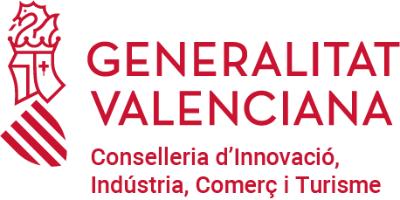SMART SPECIALIZATION
What is smart specialization?
Smart specialization is one of the key pillars of EU cohesion policy. Unlike traditional sectoral approaches (horizontal), smart specialization requires regions to concentrate their investments on a limited number of context-specific research and innovation priorities.
La actual Estrategia de Especialización Inteligente de Valencia fue aprobada en 2022 y seguirá siendo uno de los instrumentos de política pública más importantes para estimular la investigación y la innovación en la Comunidad Valenciana.
What is RIS3 in the Generalitat Valenciana?
Research and Innovation Smart Specialisation Strategy
It is a term that refers to the productive/business focus of a region, in our case the Valencian Community, on potentially competitive and development-generating areas within a global context.
Driving innovation
El 27 de diciembre de 2016, la Comisión Delegada para la Ciencia, Tecnología e Innovación del Consell de la Generalitat aprobó la primera Estrategia de Especialización Inteligente para la Investigación y la Innovación en la Comunitat Valenciana (RIS3-CV). Esta estrategia se diseñó para concentrar recursos en investigación e innovación, con el objetivo de transformar el modelo productivo de la región hacia actividades intensivas en conocimiento y tecnología, apoyando las capacidades locales.
Smart specialization is based on identifying regional productive potential and adopting an investment strategy in R+D that enhances these areas, differentiating itself from previous policies that sought to invest in them advanced sectors without significant results. (RIS3-CV). This strategy was designed to concentrate resources on research and innovation, with the aim of transforming the region's production model towards knowledge- and technology-intensive activities, supporting the local capacities.
This approach was integrated into the EU's cohesion policy for the period 2014-2020, requiring Member States and regions to develop RIS3 strategies to receive funds from the European Regional Development Fund (ERDF). The RIS3 ensures that investments in R+D are concentrated in strategic areas, based on an entrepreneurial discovery process that consults local actors from the business, research and social spheres.
inglés With the new EU budgetary framework 2021-2027, although it is not mandatory to update these strategies, it is recommended to do so to adapt them to the new political priorities and rules for the management of European funds, maximising thus the use of regional competitive advantages.
La nueva estrategia se basa en 3 pilares:
Transición ecológica y sostenible
Transición ecológica y sostenible para transformar el modelo económico de la Comunitat Valenciana en uno más moderno, responsable ambientalmente y eficiente en el uso de recursos y, por tanto, resiliente en el largo plazo.
Transformación
digital
Transformación digital y sus beneficios para la sociedad, la administración y en todos los sectores de la economía de la Comunitat Valenciana.
Cohesión social y
territorial
Serán prioritarias las medidas dirigidas a aumentar las oportunidades en todo el territorio de la Comunitat Valenciana.
Rationale for the RIS3-CV Strategy Update
1.
CONCENTRATION OF RESOURCES AND GROWTH
The RIS3 2014-2020 methodological approach, inspired by the European Commission, set out six key elements for smart specialisation. Updating is crucial to focus limited resources on priority areas with the greatest growth potential.
2.
LESSONS LEARNED AND IMPROVEMENTS NEEDED
The mid-term evaluation of RIS3-CV 2014-2018 showed positive results, but also areas for improvement. Selecting priority areas, identifying key actors and improving the connection between actors are important challenges to address in the update. in the update.
3.
INTEGRATED VISION AND SUSTAINABLE DEVELOPMENT
The EU's cohesion policy 2021-2027 proposes a broader vision for smart specialisation strategies, integrating actions in the digital, energy and industrial fields, with a local focus for sustainable development in the Valencia region. sustainable development in the Valencian Community.
4.
GOOD GOVERNANCE AND COMPLIANCE WITH STANDARDS
The new enabling condition for ERDF funds 2021-2027 requires "Good governance" in smart specialisation strategies, based on seven criteria. Updating the strategy is essential in order to meet these requirements and overcome previous weaknesses.
5.
CRISIS RESPONSE AND FUTURE PREPAREDNESS
The COVID-19 pandemic has underlined the need for R&D investment. Sound strategic plans in R&D&I are vital to address economic and social impacts, and prepare the Valencian Region for future global challenges.
6.
ALIGNMENT WITH SOCIAL AND ENVIRONMENTAL CHALLENGES
Smart specialisation strategies are key to addressing social and environmental challenges, aligning with the European Green Pact and the Sustainable Development Goals (SDGs). Mission-driven innovation for green and social and social missions is fundamental for the future.
Contact
Pedro Marques
p.marques@ingenio.upv.es
INGENIO [CSIC-UPV]
Edifici 8E, acc. J, 4ª planta
Ciutat Politècnica de la Innovació (CPI)
Universitat Politècnica de València
Camí de Vera, s/n
46022 VALÈNCIA
+34 963 877 048

Chair funded by
